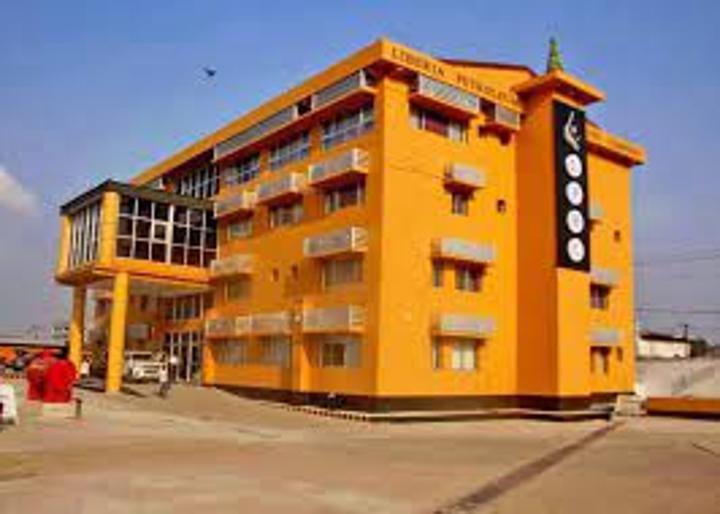Africa-Press – Liberia. The Liberian Senate terms current Petroleum Pricing Formula in Liberia as unfair and troubling.
The Liberian Senate had uncovered and indicted the Liberia Petroleum Refinery Corporation (LPRC) and the Ministry of Commerce for alleged corruption in the petroleum pricing formula regularly used by both institutions to determine petroleum prices in the Liberian market.
The Senate made the discovery and took the action through its Joint Committee on Ways and Means, Finance and Budget, Judiciary, Human Rights, Claims and Petitions, Public Corporations, Commerce, Trade and Industry, and Hydrocarbon, Energy and Environment.
Margibi County Senator J. Emmanuel Nuquay, on June 30, 2025, wrote to Plenary, highlighting the unfair and troubling nature of the Petroleum Pricing Formula, and requested an investigation into the matter to restructure the pricing formula in the country’s best interest.
In furtherance of Plenary’s mandate, the Joint Committee scheduled a public hearing on July 8, 2025, and invited the LPRC, Ministry of Commerce, Trade and Industry, Liberian Business Association, Petroleum Importers Association, and the Petroleum Storage Tanks Owners Association.
During the hearing, LPRC Managing Director, Amos Tweh, said the new management team inherited the petroleum pricing structure and made strives to reduce petroleum prices.
Mr. Tweh explained that the Financing cost was 4% of the CIF value for a plot of petroleum product, but his management team reduced it to 2% of the CIF value. Currently, the financing cost per plat is stated as follows: PMS $16.54, AGO: $16.49; JET-A1 $34.72, and HFO; $23.29. He further requested that while this pricing structure could be further adjusted, the Joint Committee could invite and engage importers for better understanding.
Speaking on evaporation charges during the hearing, the LPRC Management said evaporation charges are standard in the industry, and that LPRC employees at both LPRC’s tanks and Private tanks derive and report evaporation figures to management. He also revealed that evaporation charges in the petroleum formula are derived from landed cost of petroleum products.
Regarding the storage charge, he stated that the amount charged covers all its activities, including regulatory, administrative, vessel discharge jetty maintenance, testing, and storage.
He confirmed that private storage tank owners are charging the same amount but not rendering the same services as LPRC.
However, after a thorough engagement with both LPRC and the Ministry of Commerce, the Joint Committee insisted that the financing cost is still excessive and should be reduced.
The committee report found that a storage charge of $0.35 by LPRC is extremely excessive and the highest in the sub-region, possibly in the world.
“The Global Industry storage charge is less than US$0.05 per gallon. That storage charge in Sierra Leone is US$4.70 per MT of PMS or US$0.013 per gallon and for Diesel US$4.70 per MT or US$0.015 per gallon, and in Nigeria is 2.58 naira per liter (US$ 0.0064) per gallon and that the current storage charge is a public fund and should be mostly directed to benefit the country”, they noted.
The committee disclosed that the evaporation between 1 and 1.5 percent of the landing cost of petroleum is excessive and should be reduced.
“That from January to June 12, 2025, the total importation of petroleum products is 89,528,399 in the following categories: PMS 37, 560,567; AGO 45,263,415; JET-A1 1,648,673; HFO 5,055,744; that by applying the current evaporation rates of 1.5% for PMS, and 1% for the other products, would suggest a total of 1,083,085 gallons evaporated in the following categories: PMS 563,408 gallons; AGO 452,634 gallons, JET A-1, 16,486 gallons, HFO 50,557 gallons”, the committee noted.
The report further indicated that the evaporation is monitored by LPRC employees and has never been independently verified or audited.
It indicated a need for independent verification of actual evaporation, the quantity of petroleum imported, and the quality of the petroleum.
“That LPRC’s storage charge covers for all of its services, including storage, vessel discharge, through port, testing, regulatory; that private storage tank owners do not provide these services besides storage; that the private tank owners get the same amount of $0.35 per gallon of petroleum product as LPRC”, the committee argued.
The committee pointed out that LPRC regulatory, testing, Jetty maintenance, and Vessel discharge charges are not separately accounted for in the Petroleum Pricing Formula but are included in the storage charge, which should not be.
For More News And Analysis About Liberia Follow Africa-Press






